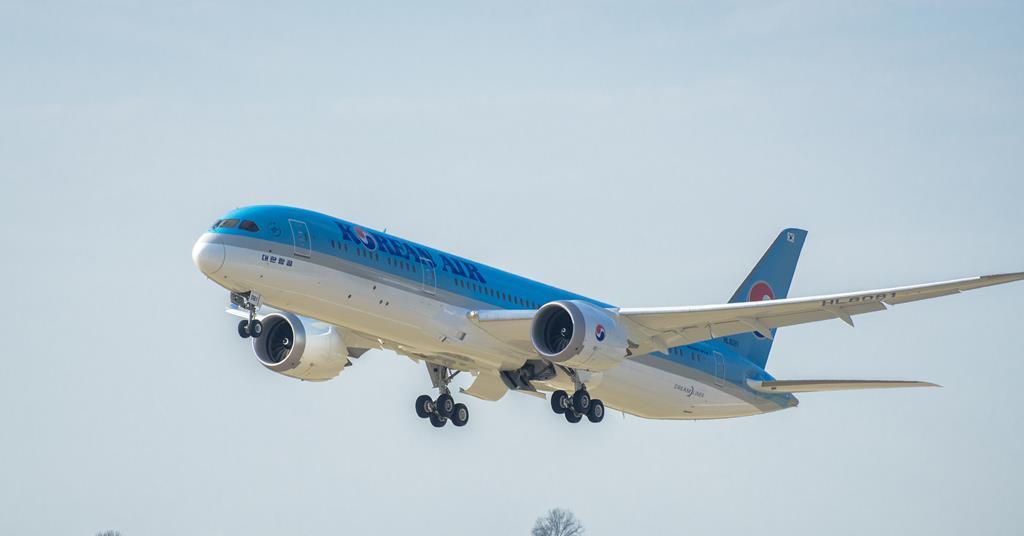Korean Air has recently signed a memorandum of understanding (MOU) with global energy company Shell to purchase their sustainable aviation fuel (SAF). The MOU explores the supply and purchase of SAF from Shell at major airports in Asia Pacific and the Middle East from 2026 for five years.
SAF is non-conventional aviation fuel derived from alternative raw materials such as cooking oil waste, household waste, and industrial waste gas. From production to consumption, sustainably-produced SAF may reduce carbon footprint up to 80% compared to existing fossil-derived aviation fuel.
SAF has surfaced as an important carbon reduction tool in the aviation industry to cope with global climate change, and efforts to boost SAF production and distribution has gained momentum from targeted investment and policy support in the U.S. and the EU. However, with shortage of production facilities, and high costs, supply falls short of expected demand.
The airline will work with Shell and continue to expand cooperation with other global oil companies to secure a SAF supply for other regions including Europe and the U.S.
In November 2017, Korean Air became the first Korean airline to use SAF on a flight departing from Chicago to Incheon. In February this year, the airline also started using SAF on flights from Paris to Incheon.
Last year, the airline partnered with Korea’s leading petroleum and refinery companies, Hyundai Oilbank and SK Energy, to adopt SAF and carbon-neutral jet fuel, respectively.
In February this year, Korean Air also signed a Memorandum of Understanding (MOU) with Incheon International Airport Corporation (IIAC), Airbus, and Air Liquide to cooperate on supplying aviation hydrogen fuel and developing relevant infrastructure in Korea. Korean Air will continue to collaborate with partners to proactively respond to climate change by reducing carbon emissions.


